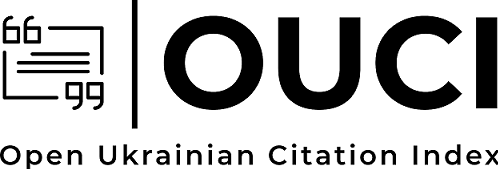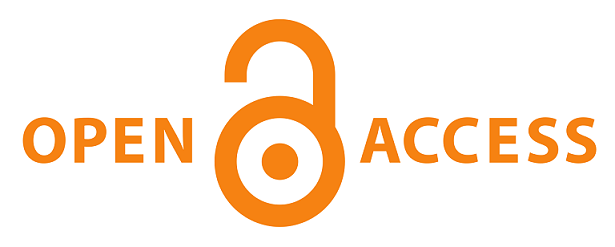UKRAINIAN STATE AT THE TURN OF XVII–XVIII CENTURIES
DOI:
https://doi.org/10.28925/2524-0757.2017.25Keywords:
Hetmanate, state foundations, Hetman, Russia, absolutismAbstract
During the Liberation War of 1648-1657s the revival of Ukrainian state as a successor of the princely Rus happened. Formation of its main principles during the war led to internal conflict and the failure to conduct foreign policy. Hetman Bohdan Khmelnytsky gradually began to lean to the idea of hereditary power in Ukraine and establishment of monarchical form of government that met Europe’s leading trends of early modern political space. In the second half of 17th century Cossack Army political system experienced radical transformations in which the governing regime acquired the authoritarian traits under the influence of various factors. Public legal status of Hetman state in this period is the most determined in “Hlukhivsky Articles” in 1669. They became a political compromise between demoralized by long-term armed conflict Ukrainian officers and Moscow kingdom. The political system of Ukraine passed severe tests during the Great Northern War, against the background of the formation of absolutism in the Russian state. Victory over the Swedes at Poltava in 1709 enabled the king Peter to intervene in the Ukrainian affairs through its resident at Hetman court. His official powers included surveillance after activities of Ukrainian ruler and control of foreign policy of I. Skoropadsky. Part of the Cossacks, who moved to the territory of the Ottoman Empire, tried to review the political system in Ukraine after the death of Ivan Mazepa. Hetman closest supporters, especially the younger generation of Cossack officers, were inclined to accept new ideas of European politicians that were declared by ideologists of early bourgeois revolutions. In the main text of “Pylyp Orlyk Constitution” it was proclaimed the principles of building a sovereign Ukrainian state under the nominal patronage of the Swedish king. But the project was not implemented. Meanwhile strengthening position of the Russian tsar led to the crystallization of imperial regime, which Hetman state was unable to resist.
Downloads
References
Akty, otnosiashchiesia k istorii Yuzhnoi i Zapadnoi Rossii, T. 4. (1863). Sankt-Peterburg, 267 p. (in Russian).
Biblioteka Muzeiu Chartoryiskykh v Krakovi. Viddil rukopysiv. Spr. 964, 26 ark. (in Polish).
Vasylenko, N. P. (1929). Konstitutsiia Filippa Orlika. Moskva, Uchenyie zapiski Instituta istorii RANIION, T. 4, pp. 157–179 (in Russian).
Golikov, I. I. (1843). Deianiia Petra Velikogo, mudrogo preobrazovatelia Rossii. Moskva, T. 15, 243 p. (in Russian).
Horobets V. (2009). Vlada ta sotsium Hetmanatu. Kyiv, Instytut istorii Ukraіny NAN Ukrainy, p. 270 (in Ukrainian).
Hurzhii, O. I. (1996). Ukrainska kozatska derzhava v druhii polovyni XVII— XVIII st.: kordony, naselennia, pravo. Kyiv, Osnovy, 223 p. (in Ukrainian).
Hurzhii, O. (1998). Hetman Ivan Skoropadskyi. Kyiv, Instytut istorii Ukrainy NAN Ukrainy, 207 p. (in Ukrainian).
Istochniki Malorossiiskoi istorii, sobrannyie D. N. Bantysh-Kamenskim i izdannyie O. Bodianskim. (1858). Moskva, Ch. I, 339 p., Ch. II, 340 p. (in Russian).
Kostomarov, N. I. (1905). Ruina. Hetmanstvo Briukhovetskogo, Mnogogreshnogo i Samoilovicha. Sobr. soch. Istoricheskie monohrafii i issledovaniia. Sankt-Peterburg, Kn. 6, T. 15, 16, 814 p. (in Russian).
Ohloblyn, O. (2001). Hetman Mazepa ta yoho doba. Niu-York, Kyiv, Lviv, Paryzh, Toronto, 461 p.
Pakty i konstytutsii zakoniv ta volnostei Viiska Zaporozkoho. Istoriia ukrainskoi konstytutsii. (1997). Kyiv, Pravo, pp. 31–46 (in Ukrainian).
Soloviev, S. M. (1991–1992). Istoriia Rossii s drevneishikh vremen. Sochineniia. Moskva, Mysl, Kn. II, T. 13, 14, 701 p.; Kn. VIII, T. 15, 16, 674 p. (in Russian).
Smolii, V. A., Stepankov, V. S. (1997). Ukrainska derzhavna ideia XVII–XVIII stolit: problemy formuvannia, evoliutsii, realizatsii. Kyiv, Alternatyvy, 367 p. (in Ukrainian).
Smolii, V., Stepankov, V. (2009). Ukrainska natsionalna revoliutsiia. Kyiv, Vydavnychyi dim «Kyievo-Mohylіanska akademia». (in Ukrainian).
Tairova-Yakovleva, T. (2013). Ivan Mazepa i Rosiiska imperiia istoriia «zrady». Kyiv, Klio, 403 p. (in Ukrainian).
Universaly Ivana Mazepy 1687–1709. (2002). Kyiv, Lviv, NTSh, 757 p. (in Ukrainian).
Published
How to Cite
Issue
Section
License
Copyright (c) 2018 Kyiv Historical Studies

This work is licensed under a Creative Commons Attribution-NonCommercial-ShareAlike 4.0 International License.
Authors who publish in this journal retain the right of authorship of the work and give to the journal right of first publication of this work under the conditions of Creative Commons: Attribution-NonCommercial-ShareAlike 4.0 International (CC BY-NC-SA 4.0), which allows others freely distribute the work published with reference to the authors of the original work and the first publication of this magazine.














